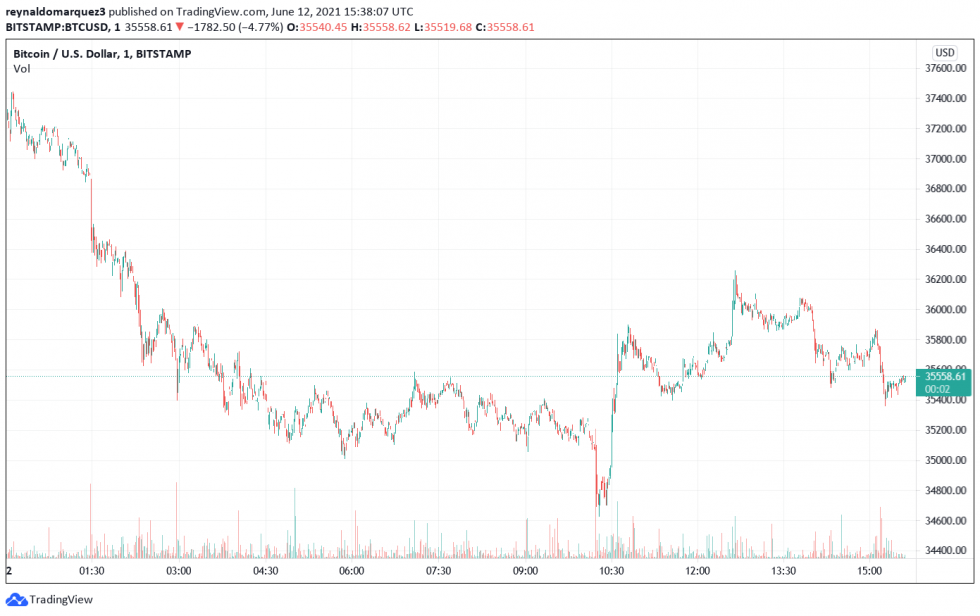The World Economic Forum (WEF) has published a report called “Cryptocurrencies: A Guide to Getting Started” on Bitcoin, Ethereum, and other cryptocurrencies. The report is part of their Global Future Council on Cryptocurrencies and it’s intended to provide the readers with the basics of this new asset class.
The total market cap of Bitcoin, Ethereum, and the rest of the cryptocurrencies managed to surpass $2 trillion. The industry and underlying technology, according to the report, have matured with $65 billion in on-boarded assets, $1 billion sold in digital collectibles, and digital art across diverse sectors, such as file storage, cross-border payments, non-fungible tokens (NFTs).
The WEF acknowledged the relevance of cryptocurrencies and wants CEOs, product managers, technology professionals, corporate leaders, and more to have a guide on how they can apply cryptocurrencies to their work and life.
Thus, the report explains subjects such as taxation, making transactions, custody of the funds, and how to buy Bitcoin. These are relevant points and could help to drive adoption from the target audience, a major goal for the market to continue to evolve. The report claims:
As cryptocurrency matures, there has been increased interest from technology leaders in understanding this industry.
Bitcoin, Obstacles, And Potential For A Nascent Asset Class
The WEF talks about privacy, pseudonymity, and anonymity, and informs their target audience on tools useful to explore a blockchain, such as block explorers. In general, the financial institutions kept a neutral stance and highlight the complications with regulations, energy consumptions, and privacy.
On the first of these topics, the institution claims that the debate around crypto regulation is influenced by the politics of financial crimes. Know Your Customer (KYC) and Anti Money Laundering (AML), policies that go against one of Bitcoin’s fundamental principles, are “at the center of many national and international” agendas.
The World Economic Forum claims that crypto regulation has lagged. The institution adds that this has been a difficult topic for regulators around the world.
To date, there has been no internationally coordinated regulation of blockchain and cryptocurrencies, though international bodies such as the Financial Action Task Force, Financial Stability Board, International Organization of Securities Commissions and Bank of International Settlements have been working towards international standards and guidance in service of this aim.
On energy consumption, the report does a better job than most of the mainstream media. It makes no claims that BTC’s Proof-of-Work (PoW) it’s bad for the environment. The WEF states that energy consumption is necessary to maintain the network’s security.
The proof-of-work scheme is thus compute-intensive and energy demanding, but it is key to addressing the double-spending problem and ensuring the security of the blockchain, as it costs money to attack the network.
The report contrasts alternatives, such as Proof-of-Stake (PoS). However, it claims that this consensus algorithm, powering Ethereum 2.0. Beacon Chain, it’s “less battle-tested”. Ultimately, the WEF encourages them to try Bitcoin, Ethereum, and cryptocurrencies for themselves as they believe it’s the only way to truly understand them and their underlying technology.
At the time of writing, BTC trades at $35,536 with moderate losses in the daily chart. The cryptocurrency has seen a lot of volatility in the past 24 hours.

- 7
- 9
- Action
- Adoption
- algorithm
- AML
- Anonymity
- around
- Art
- asset
- Assets
- audience
- Bank
- Basics
- beacon chain
- Billion
- Bitcoin
- Bitcoin BTC
- blockchain
- board
- BTC
- BTCUSD
- buy
- buy bitcoin
- claims
- Consensus
- consumption
- continue
- Costs
- Council
- Crimes
- cross-border
- crypto
- cryptocurrencies
- cryptocurrency
- Custody
- debate
- digital
- digital collectibles
- Economic
- energy
- ethereum
- Ethereum 2.0
- financial
- financial action task force
- Financial institutions
- First
- follow
- funds
- future
- General
- Global
- guide
- Highlight
- How
- How To
- HTTPS
- industry
- Institution
- institutions
- interest
- International
- IT
- Job
- Key
- Know Your Customer
- KYC
- LEARN
- Mainstream
- mainstream media
- major
- Making
- Market
- Market Cap
- Media
- money
- Money Laundering
- network
- NFTs
- non-fungible tokens
- Other
- payments
- policies
- politics
- PoS
- PoW
- privacy
- Product
- professionals
- Proof-of-Stake
- proof-of-stake (PoS)
- Proof-of-Work
- readers
- Regulation
- Regulators
- report
- REST
- Sectors
- Securities
- security
- sold
- Stability
- standards
- States
- storage
- Talks
- Target
- task force
- Taxation
- Technology
- The Basics
- time
- Tokens
- Topics
- Transactions
- Trends
- Volatility
- WEF
- Work
- world
- World Economic Forum
- writing













